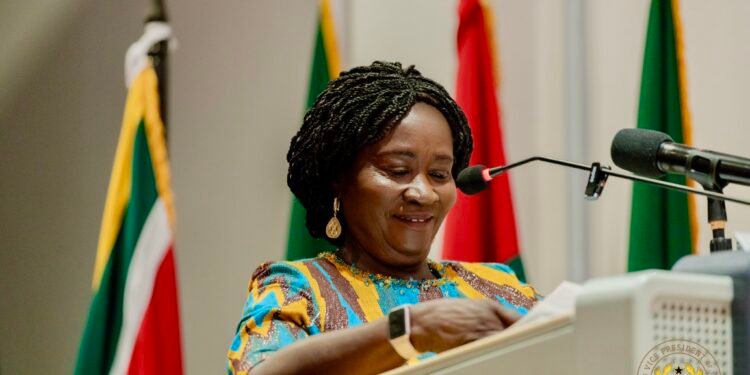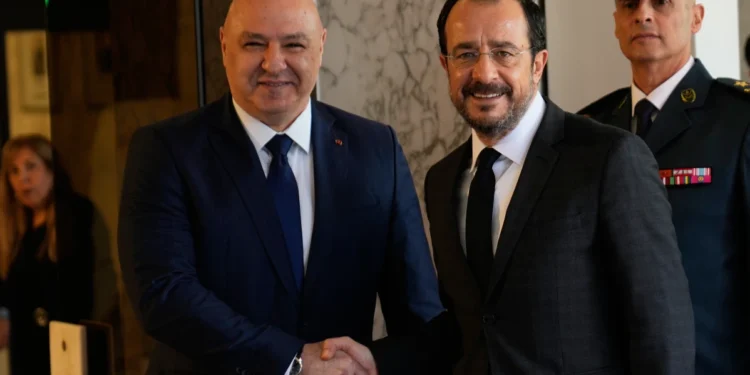Ghana’s sanitation crisis has again come under sharp national scrutiny as the Ministry of Local Government, Chieftaincy and Religious Affairs warns that the country is losing more than $500 million annually due to poor sanitation while only a quarter of households have access to decent private toilets.
The stark assessment delivered by Minister Ahmed Ibrahim during the commemoration of World Toilet Day underscores the urgent need for coordinated national action to reverse decades of slow progress and mounting public health risks.
The latest assessment from the ministry reveals that only 25 percent of households nationwide have improved, non-shared toilet facilities, while 18 percent still practise open defecation. Rates in some regions remain even more alarming, with the Upper East Region recording a peak of 49 percent.
In addressing the broader economic implications, he reminded stakeholders of earlier financial analyses that underscored the magnitude of Ghana’s sanitation challenge.
“As far back as 2012, the World Bank estimated that Ghana loses 290 million US Dollars annually due to poor sanitation. This includes health care costs, productivity losses, pollution clean-up costs and tourism potential losses.
“Adjusted for inflation and population growth, that figure could now exceed 500 million US Dollars per year. The economic case for sanitation investment is therefore clear for all”
Hon. Ahmed Ibrahim, Minister of Local Government, Chieftaincy and Religious Affairs
Against the backdrop of Ghana’s lower-middle-income status, the minister described the situation as untenable and blamed a combination of weak enforcement, rapid urbanisation, chronic underfunding, and the widespread perception of toilets as optional household investments.

Hon. Ibrahim warned that sanitation access continues to trail behind improvements in water and electricity because the sector remains “chronically underfunded.” He explained that far more investment goes into water supply compared to sanitation, resulting in widening disparities in national service delivery.
A key factor the Minister highlighted was the rapid expansion of Ghana’s urban population, which continues to outpace sanitation infrastructure development.
He reminded participants that more than 75 percent of urban households rely on on-site sanitation systems that require regular dislodging and treatment, yet the supporting infrastructure has not grown proportionally.
“Our urban population is rapidly growing at 3.3% annually, one of the highest in Africa and has overtaken the pace of urban sanitation infrastructure development. In Accra alone, the population has grown more than 60% in the last two decades, but the expansion of sewage systems has been minimal”
Hon. Ahmed Ibrahim, Minister of Local Government, Chieftaincy and Religious Affairs
Weak enforcement of sanitation by-laws also emerged as a central concern.
Many assemblies, Hon. Ibrahim noted, lack adequate environmental health officers, building inspectors, logistics, and monitoring capacity. Hon. Ibrahim further observed that the absence of penalties for non-compliance has allowed some households to avoid constructing toilets for years without consequences.
Collective Responsibility
Emphasising that the government alone cannot deliver universal sanitation, the minister called for a national mindset shift that places sanitation at the centre of communal responsibility, insisting that the agenda for “Toilet for All” requires the active involvement of households, traditional authorities, the private sector, and local assemblies.

Hon. Ibrahim added that meeting Sustainable Development Goal 6.2 is possible only if institutions collaborate more intentionally, avoid duplication, and sustain shared monitoring systems.
He stressed that “Ghana already knows what works in the sanitation sector,” citing successful community-led sanitation approaches that have eliminated open defecation in more than 6,000 communities and toilet-revolving financing schemes that have enabled thousands of low-income households to build improved facilities.
The minister urged that national sanitation efforts pay special attention to vulnerable communities at risk of exclusion.
He mentioned northern regions, low-income urban settlements, island communities along the Volta Lake, and informal settlements across major towns and cities as areas requiring targeted support to ensure equitable access to sanitation facilities.
“Healthier and safer human settlements require the following – Households investing and maintaining their toilets, traditional authorities enforcing community norms, faith-based organizations driving behavior change, private sector expanding low-cost toilet functions –
“The media sustaining the public education and sensitization, the metropolitan, municipal, and district assemblies enforcing regulations and implementing sanctions, development partners providing technical and financial support, like they are doing now, schools and health facilities ensuring toilets are safe and accessible”
Hon. Ahmed Ibrahim, Minister of Local Government, Chieftaincy and Religious Affairs
The Local Government Minister’s broader message underscored that Ghana stands at a critical juncture where decisive action can prevent severe economic and public health costs while accelerating long-delayed progress.

The challenge, he stressed, is not a lack of knowledge or capacity but the national resolve to confront a crisis that has persisted for far too long.
READ ALSO: Poland To Close Last Russian Consulate After Suspected Railway Sabotage























